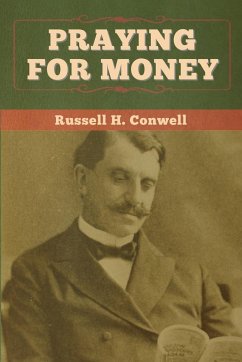
Psychology of Parables
Versandkostenfrei!
Versandfertig in 1-2 Wochen
12,99 €
inkl. MwSt.

PAYBACK Punkte
6 °P sammeln!
We are introduced to parables by Jesus as a way of sharing a story with a deeper meaning. Often these were used to help his followers understand concepts about heaven, discipleship, and other teachings. This is a study about how Jesus used parables to avoid confrontation, while still providing lessons to his followers. The Psychology of Parables began with a conversation about the meaning of the parable of the "Prodigal Son" between author Dennis A. McIntyre and a Christian co-worker named Ted Magee. Ted spent much of his early career in seminary, studying for the ministry. While he had heard ...
We are introduced to parables by Jesus as a way of sharing a story with a deeper meaning. Often these were used to help his followers understand concepts about heaven, discipleship, and other teachings. This is a study about how Jesus used parables to avoid confrontation, while still providing lessons to his followers. The Psychology of Parables began with a conversation about the meaning of the parable of the "Prodigal Son" between author Dennis A. McIntyre and a Christian co-worker named Ted Magee. Ted spent much of his early career in seminary, studying for the ministry. While he had heard many sermons on the wayward son as the focus of Jesus' parable, he really thought the account was about the son who remained. Dennis shared with him that the story was also about the father, and so the two men agreed to co-write a book on the topic. Immediately, Dennis began his portion with an in-depth look at this parable and its history, audience, and setting. Through his study, Dennis began to understand some insights into the psychology of parables and their unique effects upon the hearts and minds of both their original and contemporary hearers. Ted was also able to share His thoughts, which are captured in this book. Throughout the study within this book, the author addresses how Jesus taught others to handle difficult relationships in more positive ways with the hope that modern readers will find similar answers for themselves.














